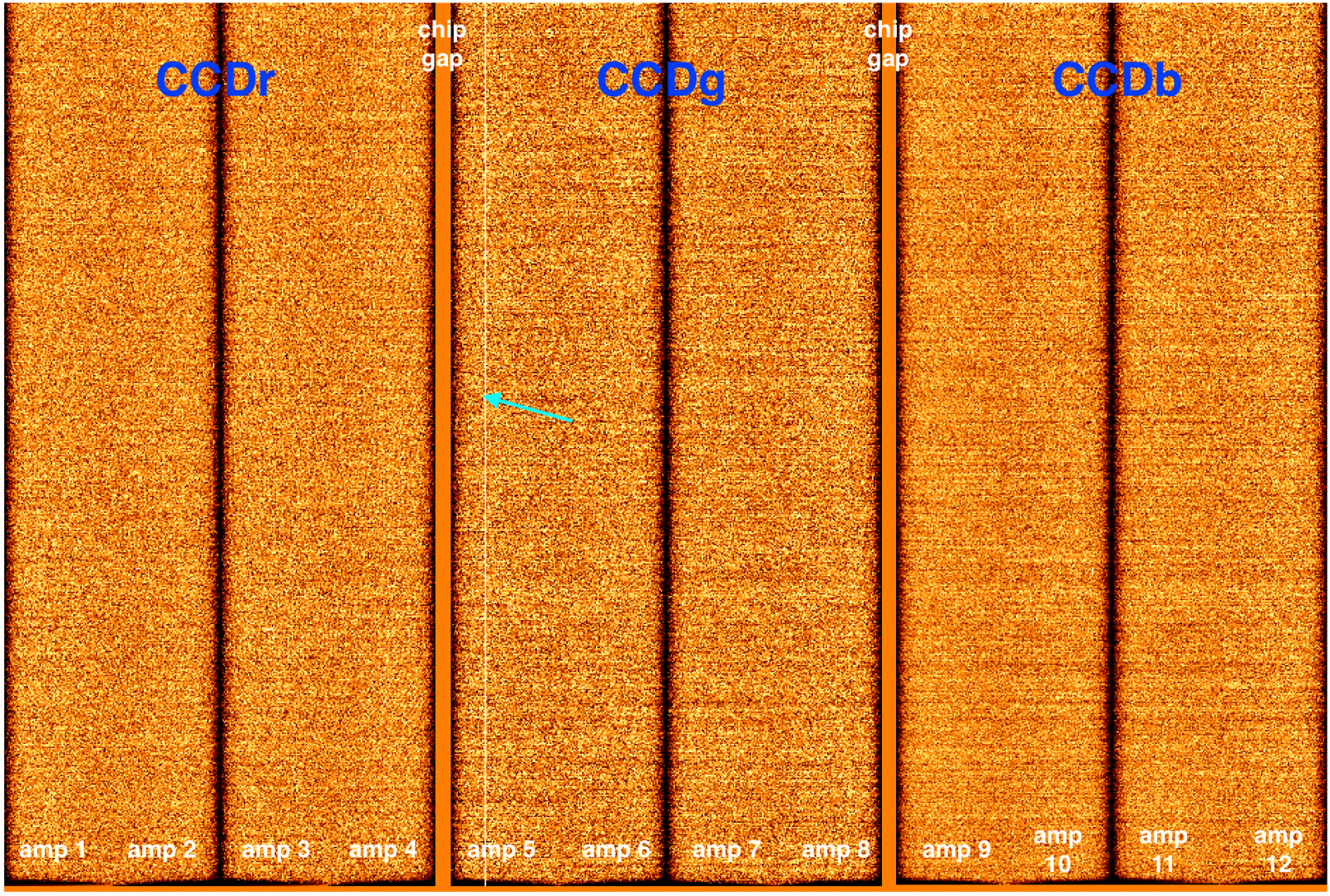Gemini IRAF Patch for New Flamingos 2 Filters
A patch release for Gemini IRAF v1.14 is available.
The replacement of two filters and the reshuffling of another in Flamingos 2 necessitated additions and modifications to lookup tables and modifications to the code. This patch release contains only the affected files. The patch is to be applied on-top of an already installed Gemini IRAF v1.14 package.
Installation instructions and content of the patch are available in gemini_v114_patch1.txt.
Webpage on GMOS-N detector status
A new webpage with information on the current status of the GMOS-N detector array is now available here. The webpage provides details on the recent hot column features (see March 10 announcement) and updated recommendations for dither strategies to minimize the impact of the hot columns on science data. Any future updates from the ongoing characterization of the hot columns will be posted on this webpage.
Update on the GMOS-S status: upcoming intervention
As of July 2022 the noise problem on CCD2 and CCD1 persists.
GMOS-S available in limited mode
Although the CCD1 CTE issue was fixed, the noise problem on CCD2 and CCD1 persists.
Users are advised to choose an appropriate dither strategy minimizing the effects of the bad amplifier on their science data and/or to place targets or spectral features of interest on other parts of the detector. Se this document for further description. For IFU-R, tha same startegy can be applied as well. We are still assessing whether this works for MOS and IFU-2.
GMOS-N status update
The GMOS-N detector issue reported on March 2 has largely been resolved by the full thermal cycle performed between March 2 and 3. The extended bright columns on amplifiers 7 and 12 are no longer present. The narrow bad column of hot pixels on amplifier 5 persists and saturates in longer science exposures. The following figure shows the hot column in an overscan-subtracted bias image (as marked by the blue arrow).

Gemini South Shutdown Night March 10/11
Today Thursday March 10th we will reinstall the repaired P2WFS in the telescope. This requires removal and reinstall of the A&G which takes more than a day and thus tonight March 10th the telescope will be in shutdown and we expect that tomorrow night we will be back in operation.
F2 MOS available via FT and normal queue
Multi object spectroscopy with Flamingos-2 is now offered via the latest Fast Turnaround Call for proposals and also for regular queue in 2022B. Details on this capability can be seen here.
New GMOS-N bias features
The GMOS-N detector has shown new bias features since an uncontrolled warm-up of the detector on February 26, 2022 . These features consist of a narrow bright column on amplifier 5, and broader bright columns on amplifiers 7 and 12. As a first measure to address this new issue, a full thermal cycle of the detector is being performed starting from today. GMOS will be unavailable for the next couple of nights until the thermal cycle is complete.
2022B Call for Proposals
Gemini is now accepting proposals for observing time in Semester 2022B. The submission deadline varies with participant. A new version of the Phase I Tool (PIT) has been released to support proposal submissions.